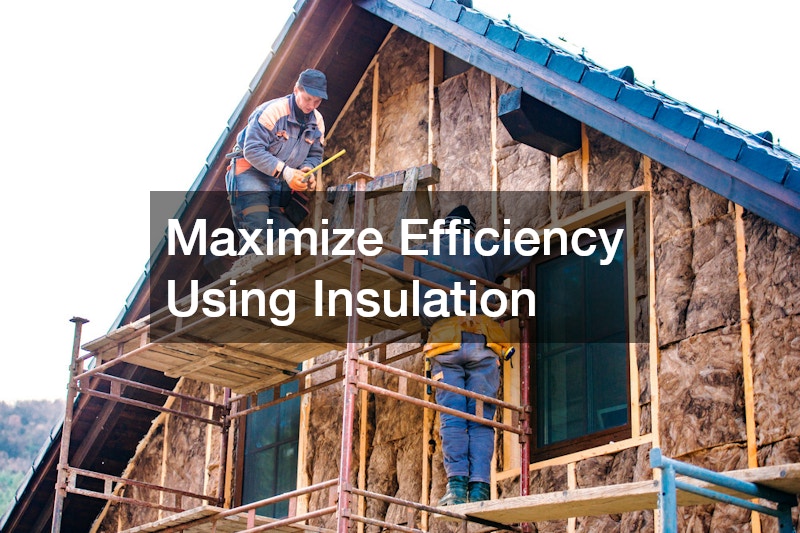Making a home energy efficient is more than just a matter of saving on utility bills; it’s about creating a comfortable, sustainable living environment that benefits both residents and the planet. With energy costs continuing to rise, homeowners are increasingly seeking strategies that balance practicality, comfort, and affordability. By implementing targeted improvements and regular maintenance, you can significantly reduce energy waste, improve your home’s performance, and contribute to long-term sustainability. From structural enhancements to technology upgrades, energy efficiency touches nearly every aspect of homeownership.
This article explores ten practical tips designed to help homeowners make informed choices about energy efficiency. Each tip addresses a different part of the home, demonstrating how small changes or preventative measures can lead to noticeable results. Whether it’s ensuring your generator is ready for unexpected outages, updating your electrical services, or improving insulation, these strategies collectively create a home that operates smarter and more efficiently. Emphasising both preventative care and thoughtful upgrades, these steps can help homeowners lower costs, reduce environmental impact, and enjoy greater comfort throughout the year.
The recommendations also highlight how professional services play a critical role in maximising energy efficiency. Working with skilled roofers, HVAC technicians, and insulation experts ensures that improvements are installed correctly and perform optimally over time. Similarly, timely repairs, such as window replacement or door upgrades, prevent energy loss and maintain consistent indoor temperatures. Affordable and accessible solutions like curtains, blinds, and propane usage further complement professional interventions, demonstrating that energy efficiency is achievable without excessive expense.
By approaching energy efficiency as a comprehensive, home-wide effort, homeowners can address both immediate needs and long-term goals. This guide provides a structured path for tackling key areas of the home, from climate control systems and insulation to structural elements and energy sources. Incorporating these tips into regular maintenance routines and renovation plans not only optimises energy use but also enhances the overall functionality, comfort, and value of your property.
In the sections that follow, we will explore ten specific areas where homeowners can make a difference, explaining how each contributes to smarter energy use and a more efficient, sustainable home. These tips offer actionable solutions for every household, demonstrating that thoughtful planning and professional support can make energy efficiency both attainable and rewarding.
Stay Prepared and Efficient With a Generator
Keeping a generator in excellent working condition is essential for maintaining energy efficiency in your home, especially during power outages or periods of high electricity demand. A well-maintained generator ensures that critical systems continue operating without relying excessively on inefficient backup measures. Regular servicing extends the lifespan of the unit and maximises its output.
Scheduling routine generator service allows technicians to inspect fuel systems, battery health, and electrical connections, which directly impacts performance. Efficient generators consume less fuel and provide reliable energy delivery, reducing waste during emergency use. Homeowners who maintain their generators also avoid costly repairs and interruptions that can lead to unnecessary energy usage from alternative devices.
Additionally, generator service helps identify potential issues before they become major problems, maintaining consistent energy flow and protecting sensitive electronics. Simple practices like keeping the generator in a ventilated area, testing it monthly, and replacing filters as recommended can further enhance efficiency. By keeping your generator running optimally, you support the overall energy efficiency of your household, ensuring that backup power contributes to comfort without adding strain on resources.
Upgrade Your Electrical System

Modernising your home’s electrical services is a crucial step toward improved energy efficiency. Updated wiring, smart breakers, and energy-efficient panels allow electricity to be distributed more effectively, preventing losses and overuse. This proactive approach supports safer, more reliable home energy management.
Hiring professional electrical services ensures that systems meet current standards and integrate seamlessly with energy-efficient appliances. Smart circuits and advanced monitoring systems help homeowners track consumption, identify inefficiencies, and adjust usage patterns, leading to noticeable reductions in electricity bills. Electrical upgrades can also include motion sensors, programmable timers, and energy-efficient outlets, allowing greater control over energy usage throughout the home.
Enhanced electrical systems also support future upgrades, such as solar power or EV chargers, further improving energy efficiency. By consulting an experienced electrician, homeowners can receive tailored advice for optimising power distribution, reducing standby power consumption, and improving the safety of their home. Modern electrical services create a foundation for sustainable living and long-term savings.
Seal Heat Loss Through Your Windows
Windows are one of the main sources of heat loss and drafts, directly affecting home energy efficiency. Repairing cracks, replacing broken seals, and addressing worn-out frames keeps warm air inside during winter and prevents cool air from escaping in summer. Proper window maintenance supports consistent indoor temperatures.
Timely window repair ensures that your HVAC systems don’t need to work as hard to maintain comfort, which reduces electricity consumption and prolongs equipment life. Energy-efficient windows with quality sealing can cut energy loss by significant percentages, making them an important investment for long-term efficiency. Double or triple glazing, low-E coatings, and weatherstripping are additional solutions that improve energy retention.
Moreover, repairing or upgrading windows contributes to both comfort and aesthetics. Sealed windows prevent moisture damage, reduce noise, and complement other energy-saving measures, making them a foundational element of a more energy-efficient home. Homeowners may also consider installing window films or insulated curtains to maximise savings, making window maintenance an integral part of an energy-efficient home strategy.
Work with Roofers to Improve Energy-Saving Roof Solutions

A roof plays a critical role in insulating your home and maintaining energy efficiency. Professional roofers can install reflective, insulated, or energy-efficient roofing materials that reduce heat transfer and help regulate indoor temperatures naturally.
Roofers can also identify areas of wear or damage that compromise insulation and energy retention. Replacing damaged shingles, sealing leaks, and adding radiant barriers ensures that the roof functions optimally, reducing reliance on heating and cooling systems. Additionally, selecting lighter-coloured or reflective roofing materials can minimise heat absorption during summer months, further improving efficiency.
Properly maintained and energy-conscious roofing contributes to lower utility bills, longer roof lifespan, and a more comfortable living space. Collaborating with roofers who understand energy efficiency allows homeowners to combine structural integrity with sustainable performance. Routine roof inspections and preventive maintenance plans also help detect minor issues before they become major energy drains, protecting investment and comfort.
Boost Insulation In Your Doorways
Doors can be a hidden source of energy loss if gaps or worn seals allow air to escape. Replacing outdated doors with energy-efficient models improves thermal performance, helping maintain consistent indoor temperatures and supporting overall energy efficiency.
Strategic door replacement involves selecting doors with proper insulation ratings, weatherstripping, and tight-fitting frames. This prevents drafts, reduces pressure on heating and cooling systems, and enhances comfort throughout the home. Homeowners might also consider insulated storm doors, multi-point locking systems, and durable exterior finishes to further reduce heat transfer and improve efficiency.
Additionally, energy-efficient doors improve security, aesthetics, and value while contributing to a more sustainable household. Small upgrades, such as replacing entryways or patio doors, can have a noticeable impact on energy usage and cost savings. Doors paired with proper threshold seals and adjustable sweeps ensure airtight protection, further enhancing home comfort and reducing energy bills.
Control Heat and Light With Curtains and Blinds

Curtains and blinds are simple yet effective tools for enhancing energy efficiency. By managing sunlight exposure and insulating windows, these coverings help reduce heat gain in summer and heat loss in winter.
Choosing high-quality, thermal-lined curtains or adjustable blinds allows homeowners to fine-tune indoor temperatures without relying excessively on HVAC systems. Layering blackout curtains with sheer panels provides flexibility for different seasons and enhances energy control. Energy-efficient blinds can also help reduce glare and UV damage to furniture, offering dual benefits of protection and cost savings.
Layering curtains and blinds with other window upgrades further improves energy efficiency, demonstrating that small, affordable adjustments can make a measurable difference in home performance. Combining these window treatments with reflective films or weatherstripping creates an integrated approach to energy conservation in every room.
Retain Heat and Cool Air In Your Attic
Attic insulation is critical for maintaining energy efficiency, as heat naturally rises and can escape through poorly insulated spaces. Installing or upgrading attic insulation helps stabilise indoor temperatures and reduces the workload on heating and cooling systems.
Proper insulation materials, such as fiberglass or cellulose, fill gaps and minimise air leaks, preventing energy loss year-round. Attic ventilation should also be assessed, as proper airflow prevents moisture buildup and keeps insulation effective. Investing in insulation upgrades can reduce energy bills by up to 20% or more, depending on the home’s condition.
Furthermore, attic insulation supports sustainable home practices by lowering carbon footprints and extending the life of HVAC systems. Homeowners may also explore eco-friendly insulation options like recycled materials or spray-on solutions to enhance efficiency and environmental responsibility.
Maximize Efficiency Using Insulation

Spray foam insulation provides an airtight seal that prevents heat transfer, offering one of the most effective ways to enhance energy efficiency. It can be applied to walls, ceilings, and other hard-to-reach areas to reduce drafts and air leakage.
Unlike traditional insulation, spray foam expands to fill gaps and cracks, creating a comprehensive barrier that significantly improves thermal performance. Closed-cell spray foam adds structural support and moisture resistance, making it an excellent investment for both new builds and retrofit projects.
By combining spray foam insulation with other energy-saving strategies, homeowners can achieve consistent indoor temperatures, increased comfort, and a more environmentally responsible household. Proper installation guarantees long-term efficiency and performance, significantly reducing energy waste and contributing to lower utility bills.
Maintain Climate Control With HVAC
Regular HVAC service is essential for maintaining energy-efficient heating and cooling. Technicians clean, inspect, and repair systems to ensure optimal performance, reducing unnecessary energy consumption.
Professional HVAC service includes checking refrigerant levels, cleaning ducts, and replacing worn components, all of which directly impact efficiency and longevity. Advanced HVAC systems may also incorporate programmable thermostats and zoning options that maximise efficiency while keeping comfort levels high.
Routine service also prevents unexpected breakdowns and extends equipment life, allowing homeowners to enjoy reliable climate control while maximising energy efficiency year-round. Integrating HVAC maintenance with other energy-saving measures ensures a holistic approach to sustainable home comfort.
Use Propane as a Cleaner and Efficient Energy Option
Propane is a versatile, energy-efficient fuel source for heating, cooking, and water heating. Compared to other fossil fuels, it burns cleaner and provides consistent energy output, supporting both environmental and financial goals.
Using propane appliances can reduce reliance on less efficient electricity sources, contributing to lower energy bills and enhanced household performance. It is particularly effective for heating, water heating, and cooking appliances that require fast, controllable energy output. Propane can also complement solar or generator systems to provide efficient off-grid solutions.
Integrating propane into your home’s energy plan supports long-term efficiency, reduces carbon emissions, and offers a reliable, cost-effective solution for daily energy needs, complementing other energy-saving upgrades. Choosing modern propane appliances ensures safety, performance, and maximum savings over the long term.
Enhancing energy efficiency in the home requires a multi-faceted approach that addresses both structural elements and systems. From generator service to propane usage, homeowners can implement strategies that reduce energy waste, lower utility costs, and improve overall comfort. Each of the ten areas discussed—generators, electrical services, windows, roofing, doors, curtains and blinds, attic insulation, spray foam insulation, HVAC service, and propane—plays a unique role in creating a more efficient, sustainable home.
Regular maintenance and timely upgrades ensure that energy systems operate optimally, while professional expertise guarantees that improvements are installed correctly and perform as expected. Simple adjustments, like replacing doors, sealing windows, or adding insulation, complement advanced solutions such as HVAC service and spray foam insulation, demonstrating that energy efficiency is achievable at every level.
By taking a comprehensive approach, homeowners can not only save on costs but also reduce their environmental impact and increase the value of their property. Integrating energy-efficient practices into daily routines fosters a comfortable and sustainable living space, supporting long-term performance and enjoyment.
Ultimately, investing in these strategies offers measurable returns, both financially and environmentally. Prioritising energy efficiency ensures your home is resilient, functional, and comfortable year-round, while also contributing to a greener, more responsible approach to homeownership. These tips provide actionable, practical solutions for achieving a home that performs smarter, consumes less, and supports a more sustainable lifestyle.

